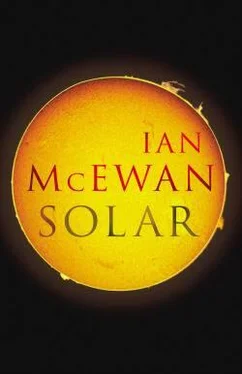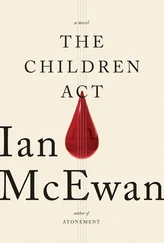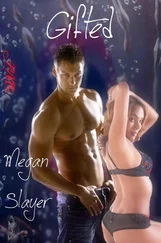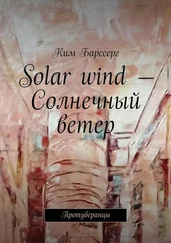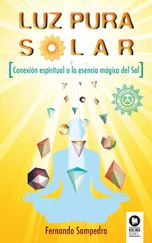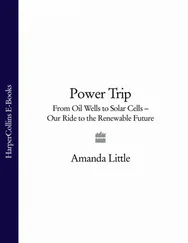He did not stand a chance, and he seemed to know it. In a tone of near regret, the prosecution laid the matter out: Tarpin’s obvious motive, the phoned and written threats, the proven violence, his hair on the murder weapon tossed in the laurels and his hair in the dead man’s grip, the tissue containing his dried nasal mucus and Aldous’s blood, the lack of an alibi. When Beard’s turn came, he spoke to the point. Was he not a citizen who respected the law? He gave a thorough account of his movements on the morning in question, then of his wife’s black eye, of his visit to the accused’s house and the blow to the face he had received. The case against Tarpin was bad enough, but it was Patrice, also appearing for the prosecution, who sank him. At the witness stand she was described by the press as beautiful and deadly, rigid with contempt for the man who had killed her lover. As a witness, Beard was not permitted to be in court to hear his wife’s testimony, and could only read the press reports. He had never known her talk so well, so clearly and to such effect. She mesmerised court and country with her account of Tarpin’s possessiveness and brutality, his jealous rages. He was an obsessive, she said, a deranged fantasist who had urged her to kill Aldous in his sleep if she ever saw the chance. He refused to let her go, and what she had thought would be a brief and casual affair became a nightmare lasting months. She was terrified of his violence but did not dare refuse him sex. He slapped her when they made love.
‘Do you not enjoy that, Mrs Beard?’ she was asked by Tarpin’s dapper counsel during cross-examination.
‘No,’ she said crisply. ‘Do you?’ There was laughter in the public gallery.
Her most quoted, celebrated remark must have been practised in front of the mirror. ‘When he killed my Tommy, the nation lost a genius,’ she said. ‘And I lost the only man I ever loved.’
The jury was out for only three hours and no one, not even Tarpin, could have been surprised by the verdict.
It was during the six days that separated the jury foreman’s announcement and the judge’s sentencing that Beard took up Aldous’s file again. It was the least he could do, to honour the dead, and he was agitated, he needed distraction. Second time around, he understood more, and began to be interested, even a little excited. The task Aldous had set himself was to discover then copy the ways of plants, perfected by evolution during three billion years of trial and error. Deploying techniques and materials still only talked of in nanotechnology, the idea was to exploit direct energy from sunlight to split water into hydrogen and oxygen using special light-sensitive dyes in place of chlorophyll and catalysts containing manganese and calcium. The stored gases would be taken up by a fuel cell to generate electricity. Another idea, also taken from the lives of plants, was to combine carbon dioxide from the atmosphere with sunlight and water to make an all-purpose liquid fuel. It was brilliant or insane – he was not sure. Marking each of his pages with last year’s date, he began some notes of his own, and then stopped because the next day, a Tuesday, the court sat, and the accused stood to hear his fate. Tarpin listened to the judge with the same intent and dreamy detachment with which he had followed all the proceedings and had protested, all too feebly, his innocence. According to the press reports, he kept looking in Patrice’s direction (Beard could imagine that inquisitive, rodent look), but she kept her face turned from him.
On the steps outside the court, she told the press and TV cameras that the sentence was not long enough, given the damage he had done. During the following week, some commentators agreed with her, while others thought it too severe for what the French might have called a crime of passion. However, watching the news that night in his socks, lying on the stinking sofa, amid the novel squalor of his bachelor apartment, with Aldous’s pages spread across his lap, Beard considered sixteen years was just about right.
2005
He was running out of time. Everyone was, it was the general condition, but Michael Beard, bloated by an unwanted lunch, shifting under his seat belt, could think only of the diminishing hours of his day, and of what he stood to lose. It was two thirty and his plane, already one hour late, still lumbered oafishly clockwise in a stack above south London. Too troubled to continue reading, gnawing ineffectually from time to time and from an awkward angle on a tender spike of cuticle in the corner of his thumbnail, a whitlow in the making, he watched his familiar corner of England rotate below him. What else could he do? This was not the time for lofty retrospection or overviews, just when he should have been rushing down streets, along corridors, but much of his past and many of his preoccupations were down there, three thousand metres below the expensive seat that others, as usual, had paid for.
Here was a commonplace sight that would have astounded Newton or Dickens. He was gazing east, through a great rim of ginger grime – it could have been detached from an unwashed bathtub and suspended in the air. He was looking past the City, down the bulging, widening Thames, past oil and gas storage tanks towards the brown flatlands of Kent and Essex and the scene of his childhood, and the outsized hospital where his mother died, not long after she told him of her secret life, and beyond, the open jaw of the tidal estuary, and the North Sea, an unwrinkled nursery blue in the February sunshine. Then his gaze was rotated southwards through a silvery haze over the Weald of Sussex towards the soft line of the South Downs, whose gentle folds once cradled his raucous first marriage, a synaesthesia of misguided love, infant excrement and wailing of their lodgers' twins, and the heady quantum calculations that led, fifteen years and two divorces later, to his prize. His Prize, that had half blessed, half ruined his life. Beyond those hills was the English Channel, trimmed with frills of pinkish cloud that obscured the coast of France.
Now a fresh tilt of the aircraft's wings turned him into the sunlight and a view of west London and, just below the trembling engine slung beneath the wing, his improbable destination, the microscopic airport, and around it, the arterial feeds, and traffic pulsing down them like corpuscles, M4, M25, M40, the charmless designations of a hard-headed age. Benignly, the glare from the west softened a little the industrial squalor. He saw the Thames Valley, a pallid winter green, looping between the Berkshire Downs and the Chiltern Hills. Beyond, lost to view, was Oxford and the laboratory-toiling of his undergraduate years, and the finely calculated courting of his first wife, Maisie. And now here it came again, for the sixth time, the colossal disc of London itself, turning like an intricately slotted space station in majestic self-sufficiency. As unplanned as a giant termite nest, as a rain forest, and a thing of beauty, gathering itself to great human intensity at the centre, along the rediscovered river between Westminster and Tower Bridge, dense with confident, playful architecture, new toys. Briefly, he thought he saw the plane's shadow flitting like a free spirit across St James's and over the rooftops, but this was impossible at such a height. He knew about light. Among those millions of roofs, four had sheltered his second, third, fourth and fifth marriages. These alliances had defined his life, and they were all, no point denying it, calamities.
These days, whenever he came in over a big city he felt the same unease and fascination. The giant concrete wounds dressed with steel, these catheters of ceaseless traffic filing to and from the horizon – the remains of the natural world could only shrink before them. The pressure of numbers, the abundance of inventions, the blind forces of desires and needs looked unstoppable and were generating a heat, a modern kind of heat that had become, by clever shifts, his subject, his profession. The hot breath of civilisation. He felt it, everyone was feeling it, on the neck, in the face. Beard, gazing down from his wondrous, and wondrously dirty, machine, believed in his better moments that he had the answer to the problem. At last, he had a mission, it was consuming him, and he was running out of time.
Читать дальше
